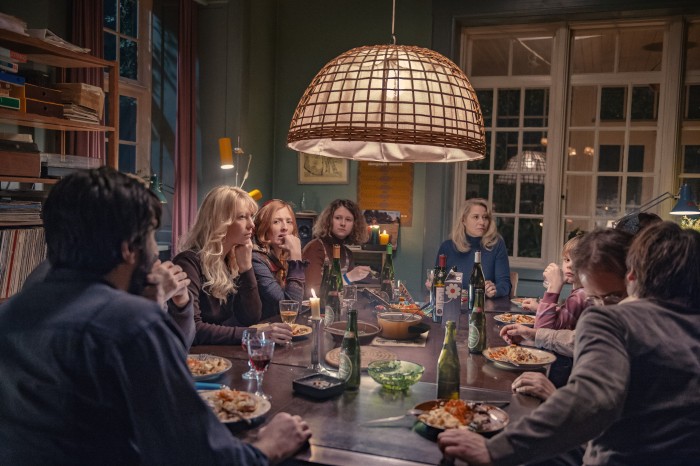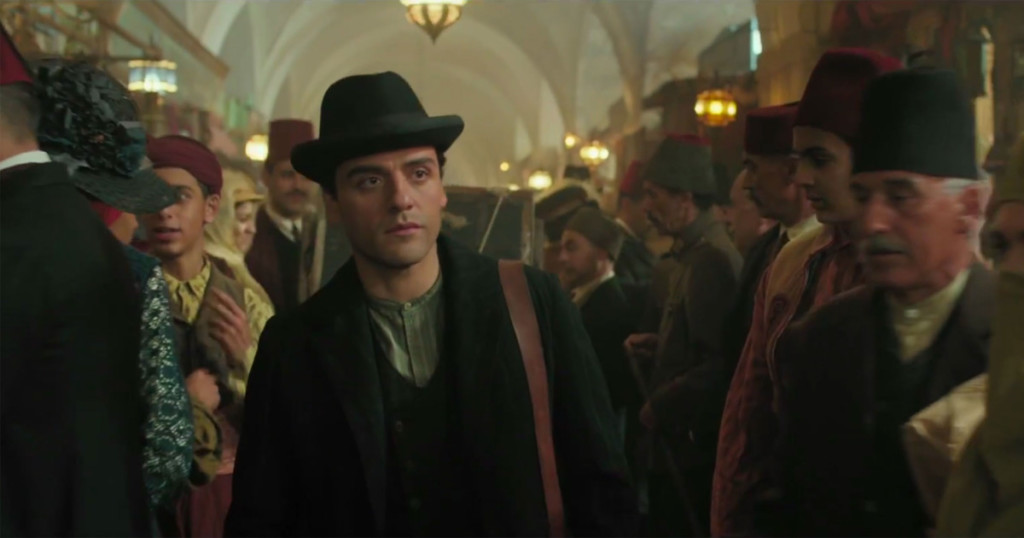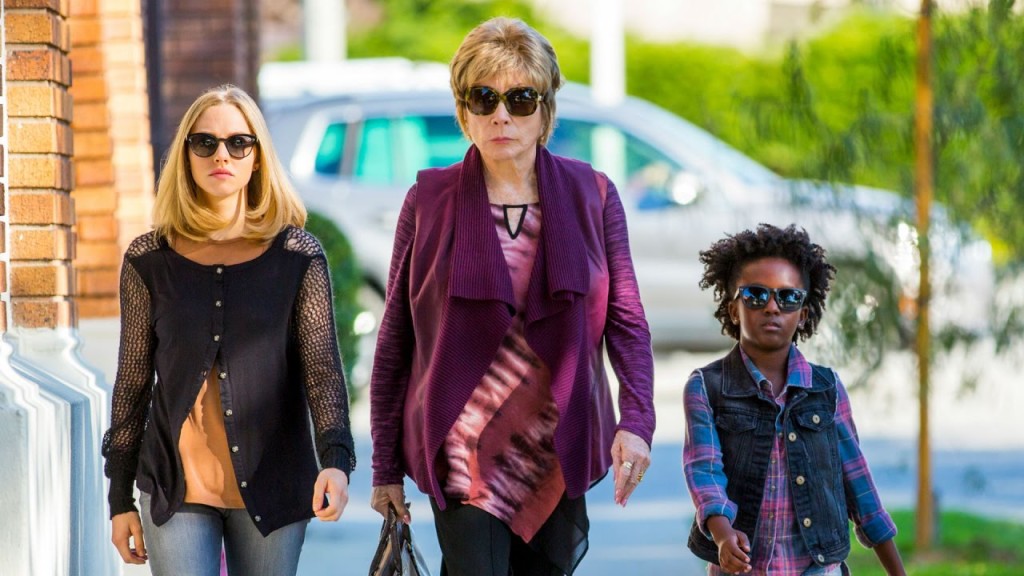
So here’s the thing with every movie ghost story – either the ghost is real, or the protagonist is crazy enough to hallucinate one. The beauty of The House on Pine Street is that the story is right down the middle – ya just don’t know until the end when the story takes us definitively in one direction – and then suddenly lurches right back to the other extreme.
Jennifer (Emily Goss) is a very pregnant urbanist, who reluctantly moves from her dream life in Chicago back to her whitebread hometown in suburban Kansas. Unlike Jennifer, her husband hadn’t been thriving in Chicago, and Jennifer’s intrusive and judgmental mother (Cathy Barnett – perfect in the role) has set up an opportunity for him in the hometown. They move to a house that is not her dream home AT ALL, “but it’s a really good deal”. Jennifer overreacts to some crumbling plaster.
Jennifer is pretty disgruntled, and, generally for good reason – her mom’s every sentence is loaded with disapproval. Her mom’s housewarming party would be a social nightmare for anyone – but it’s too literally nightmarish for her. One of the guests, an amateur psychic (an excellent Jim Korinke), observes, “the house has interesting energy”.
Then some weird shit starts happening: knocks from unoccupied rooms, a crockpot lid that keeps going ajar. And we ask, is the house haunted, or is she hallucinating? Her sane and sensible and skeptical BFF visits from Chicago as a sounding board, and things do not go well.
Co-writers and co-directors Aaron and Austin Keeling keep us on the edges of our seats. Their excellent sound design borrows from The Conversation and The Shining – and that’s a good thing.
The Keelings also benefit from a fine lead – Emily Goss’ eyes are VERY alive. She carries the movie as we watch her shifting between resentfulness, terror and determination.
The total package is very successful. I saw The House on Pine Street at Cinequest, and now it can be streamed from Amazon Instant, iTunes, Vudu, YouTube and Google Play.





